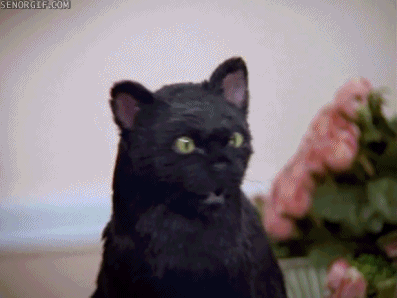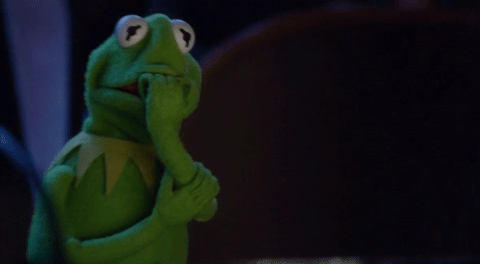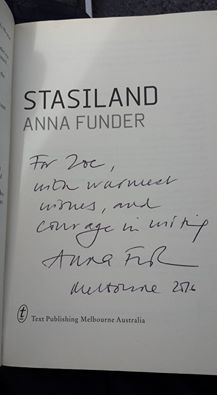I know, I know, I know… three months is a long time to be away from the blog. All I can say is that life got in the way, as it does when you aren’t looking. You put your blog down for a moment to pick up another piece of writing, or a book you’ve always wanted to read, or maybe to (sigh) go out and earn some money to keep a roof over your head, and all of a sudden life has gotten tangled around your feet because you forgot to look down, weaving itself around your legs like a cat, and then you go to move and wind up pitching head-first into the kitchen bench and need to go to hospital for stitches, while life is yowling at you to feed it and clean its litter box.

I pushed that metaphor a bit too hard, didn’t I?
Anyway, my point is that life stuff has been getting in the way of other stuff. The last few months has seen me meet some incredible people and make some wonderful contacts, as well as doing enough soul-crushing grind work to be classified as ’employed.’
So to ease back into the routine of regular blog writing, I’m going to keep it simple and talk about the Melbourne Writers Festival.
I know, it’s a departure from the usual content, but I’d be remiss if I didn’t at least say a few words about some of the events I went to on Sunday the 28th.
My morning began with a talk titled “The Art of Fiction,” in which novelist Hannah Kent interviewed the Miles Franklin Award Winning author Anna Funder. The discussion revolved around the way we tend to base fiction on reality, and all of the trials inherent in that. Funder commented that she feels obliged to do her characters justice, be they real or imaginary, and that properly representing them was important.

She also discussed how tricky it is to make the truth seem credible in fiction, because reality is often so much stranger than fiction. You often have to “reign in and tone done reality to make it credible,” which I had never really considered before.
To illustrate this point, Funder told the room about the German launch of her debut non-fiction book Stasiland, which is about people living in Berlin who worked for or resisted the East German regime. She said that during the launch, as she went up to read passages of the book in German, she saw that the first two rows were taken up by several older men wearing bomber jackets and lots of brylcream- obviously former Stasi, now members of “The Society for the Protections of the Civil Liberties of Man” (I think I got that name right). As she began to read, all of them took out notepads and pens from the top pocket of their jackets at the same time and began taking notes.

A while later, while she was back home in Sydney, Funder got an email from her German publisher saying that they were being sued by the former Stasi members. When she then went to make a cup of tea to help steady her nerves and calm down, no water came out of the tap.
See, if that was written into a novel it might seem a bit over the top, wouldn’t it? But it happened.
Funder also raised the point that in fiction you are able to write a version of truth that is more interesting than fact; a truth with structure and elegance and satisfying endings, as opposed to reality when, quite often, we don’t know what happened in the end and if our protagonist survived their ordeal or exactly what happened to them.
She signed my copy of Stasiland afterward. Her latest, The Girl With the Dogs, has been added to my reading list.

Later in the day I attended the Fantasy Fiction session with Lev Grossman, author of The Magicians, and Rainbow Rowell, who wrote Fangirl and Carry On. They were interviewed by Kate Eltham.
The discussion revolved around the idea of creating universes that are both unique and familiar.
Rowell pointed out that Fantasy and Pop Culture are common knowledge that we all share as readers and consumers, so when we write fantasy work we tap into the tropes of the genre in order to create something new. However, because we are using common themes (ie: Magic) we need to come up with new ways to express them, which is what makes The Magicians different to Harry Potter, even though both are about young men attending magic school. It’s why we don’t get tired of the Orphan trope – as Rowell put it, “Every orphan in literature was sent to save the world.”

Also discussed was the joy of using footnotes as a way to slow the story down a bit, and to add texture and detail to the world your characters inhabit without completely derailing the narration.
It was actually quite a lot to cover in an hour.
Anyway, the 2016 Melbourne Writer’s festival is still going for another week, so if you get the chance to catch any more events I can definitely recommend it. Take a look at the program here.


